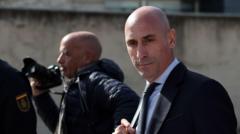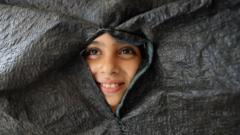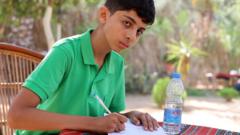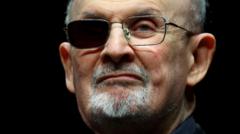As France gears up for the trial of Joel Le Scouarnec, a former surgeon accused of sexually abusing hundreds of children under anesthesia, serious concerns emerge regarding the institutional and judicial failures that allowed such abuse to persist for decades.
Largest Child Abuse Trial in French History Approaches: Former Surgeon Joel Le Scouarnec Faces Numerous Accusations
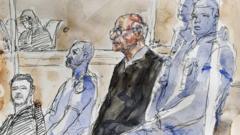
Largest Child Abuse Trial in French History Approaches: Former Surgeon Joel Le Scouarnec Faces Numerous Accusations
Joel Le Scouarnec, a former surgeon accused of sexually abusing 299 children, is set to stand trial this month in Vannes, raising profound questions about systemic failures in protecting minors.
The judicial proceedings in France are set to draw intense public scrutiny as former surgeon Joel Le Scouarnec prepares to face trial for allegedly abusing 299 children, primarily former patients, between 1989 and 2014. The trial, commencing in Vannes this month, promises to be the largest child abuse case in French history and follows a lengthy police investigation that has illuminated significant oversights and systemic failures.
Le Scouarnec, 73, who has admitted to some charges but denies others, was arrested in 2017. His case reignited a national conversation regarding the protection of children in medical settings and the potential complicity of the medical community in enabling abuse. Accusations against him suggest not only direct assault but also a troubling culture of silence, with reports claiming that his family had knowledge of his predatory behavior yet failed to intervene. "It was the family’s omertà which allowed his abuse to persist for decades," stated a lawyer involved.
The surgeon’s past is marred by alarming discoveries during police raids; these included over 300,000 images of child abuse and child-sized sex dolls, along with meticulous journals where he allegedly documented his crimes. While maintaining that his writings were merely expressions of fantasy, some entries read "I am a paedophile." The nature of the charges complicates the legal landscape, as many alleged victims were under anesthesia during the purported assaults, leaving them with only fragmented or no memories of their experiences.
Despite past alerts—such as an FBI warning regarding his online interests—little was done to monitor or restrict his activities. A 2006 inquiry by a regional medical board cleared him of ethics violations, illustrating a troubling passivity among his professional peers. “We have proof that all these colleagues knew, and none of them took action,” lamented lawyer Frederic Benoist, who represents child protection advocates.
As the trial date approaches, the emotional toll on alleged victims is palpable. Some have described the profound impact of learning that their names were linked to abuse in Le Scouarnec’s diaries. Olivia Mons from the France Victimes association noted that many adults have begun to connect traumatic experiences in their lives to the abuse, revealing the long-lasting psychological effects of Le Scouarnec’s actions.
Legal representatives assert this trial presents a critical opportunity for victims to have their voices heard, and they stress the necessity of public access to the proceedings. “The trial will be a moment of reckoning,” Ms. Satta stated, emphasizing that survivors deserve to confront their perpetrator in a transparent forum. By shining a light on institutional failures, the proceedings hope not only to deliver justice in individual cases but also to prompt a reevaluation of child protection mechanisms within medical contexts.
The trial of Joel Le Scouarnec, set to commence on February 24 and expected to last until June, is poised to serve as a chilling reminder of the consequences of negligence and the urgent need for systemic reform in safeguarding vulnerable populations.

